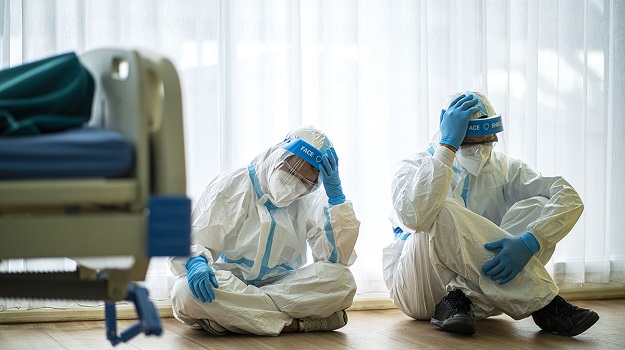Racial Inequalities and Health Care Disparities in the Time of COVID-19

On May 25, 2020, Mr. George Floyd, an African American man, died while being restrained by an officer from the Minneapolis police department. This event was captured on video, and what shocked the nation was the fact that a white police officer kneeled on the neck of Mr. Floyd for minutes while he pleaded for help before passing away. While the U.S. was reeling from the COVID-19 pandemic, another tragedy rocked the country.
Although the COVID-19 pandemic and the death of Mr. George Floyd are two separate tragedies, they are alike in that they expose deep rooted racial and social inequalities, difference in power, access and privilege. COVID-19 has been known to disproportionately affect African Americans and racial minorities with high prevalence of cardiovascular comorbidities such as diabetes, hypertension and coronary artery disease. Furthermore, at a time of economic distress and high unemployment, minorities are further disproportionately affected in that they lack access to healthy foods or medical equipment at affordable prices.

Health care disparities have always existed even in the absence of a novel coronavirus, yet the pandemic – increasing case count and the death toll – highlighted the extent to which minorities lack adequate access to good health care. New York City is a prime example – the boroughs were not equally affected by the pandemic. Queens, Brooklyn and the Bronx, areas with a high concentration of minority communities, were disproportionately affected by the COVID-19 death toll as compared to communities living in downtown Manhattan. Early on across the country, many cities with a high proportion of minorities such as Detroit, New Orleans and Chicago were hit particularly hard by the COVID-19 pandemic.
Whether it is the justice system, or the health care system, there are racial and socioeconomic inequalities that should not be ignored. The solution is not easy, and systems certainly will not be fixed overnight. However, it begins with rebuilding trust between minority communities and the establishment, whether it be health care institutions or the justice and political systems. It involves greater representation of minorities, both in medical training as well as health care policy decision-making. There should be greater representation in clinical trials, and research populations should reflect the demographics that it serves. There needs to be recognition that there is a problem, that voices need to be heard, rather than denying that racism or inequality exists. Community engagement is also essential, and solutions should be tailored for each individual culture and community. Only when communities come together can there be lasting and just solutions to better the entire nation. A period of reflection is essential, as a nation's soul is on the line, and a hope for a call to action to pursue a better future.